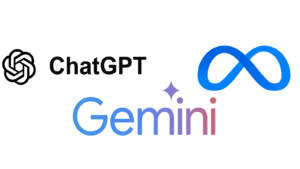Mark Zuckerberg Critiques Apple and Discusses Meta’s AI Strategy

Meta’s Focus on Open-Source AI: Mark Zuckerberg’s Vision
Meta CEO Mark Zuckerberg, at the helm of one of the world’s largest technology companies, is championing the concept of open-source artificial intelligence (AI). He believes that making AI freely available can prevent power from becoming concentrated in the hands of a few companies. In a recent letter posted on Facebook, Zuckerberg detailed the benefits of open-source AI and how it can foster innovation and competition.
The Importance of Open-Source AI
In his letter, Zuckerberg pointed out that open-source AI allows anyone to copy, modify, or leverage existing AI technology for their own projects. In the section titled "Why open-source AI is good for Meta," he shared that his experiences while building Meta’s services on Apple’s platforms played a large role in shaping this belief.
"One of my formative experiences has been building our services constrained by what Apple will let us build on their platforms," Zuckerberg noted. He emphasized that if Meta and other companies could develop unrestricted versions of their products, it would lead to significantly improved services for users.
Challenges with Closed Ecosystems
Zuckerberg criticized the restrictions imposed by companies like Apple, which he described as arbitrary rules that hinder innovation. He cited Apple’s developer tax – a standard 30% cut on app sales – as an example of how platforms can limit what developers are able to achieve. By advocating for open-source AI, Zuckerberg argues that developers won’t have to operate within the confines of competitors’ closed systems.
Advancements in Meta’s AI Models
Zuckerberg recently introduced a new open-source model from Meta, named Llama 3.1. He claims that this model outperforms closed AI systems like ChatGPT in terms of cost efficiency and performance. To support developers, Meta has partnered with industry giants like Nvidia and Amazon, aiming to ease the development and fine-tuning of AI models.
Zuckerberg emphasized that to establish Meta’s AI as an industry standard, it needs to embrace openness through "generation after generation." This long-term strategy aligns with Meta’s commitment to fostering an open-source environment in AI.
Engaging Users with AI Innovations
On social media platforms like Threads, Zuckerberg showcased various AI-generated images, encouraging user interaction by asking his followers to vote on their favorites. This active engagement highlights Meta’s efforts to involve the community in its AI initiatives.
Meta has already launched earlier versions of its open-source AI models, Llama and Llama 2. According to Zuckerberg, the AI advancements expected in the coming year will be top-tier, reinforcing Meta’s commitment to open-source innovation.
Controversy Surrounding Open Source Labels
However, not everyone agrees with Meta’s designation of its models as "open-source." The Open Source Initiative has criticized the licensing of Meta’s Llama 2 model, arguing that it imposes restrictions that contradict the principles of open-source software.
The Cost of Developing AI
Developing sophisticated AI systems is financially demanding. Dario Amodei, CEO of AI startup Anthropic, has highlighted that training an AI model can cost around $100 million, and these expenses are on the rise. Despite these costs, Zuckerberg insists that releasing open-source AI does not negatively affect Meta’s revenue because creating and selling AI assets is not central to the company’s business model.
"I believe that open source is necessary for a positive AI future," Zuckerberg declared, underlining his commitment to a more equitable AI landscape.
Through these discussions, Zuckerberg aims to shift the focus from proprietary AI technologies to a shared approach that promotes collaboration and greater innovation in the tech industry.






